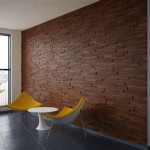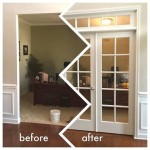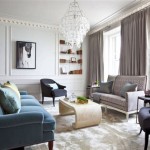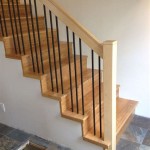Contemporary Interior Design
Contemporary interior design, often referred to as modern design, is a dynamic and ever-evolving style that reflects the present moment. It embraces clean lines, simplicity, functionality, and a focus on natural materials. Unlike other design styles that are rooted in specific historical periods, contemporary design is an ongoing conversation with the present, incorporating new technologies, trends, and cultural influences. This article will explore the key features, principles, and trends of contemporary interior design.
Key Features of Contemporary Interior Design
Contemporary design is characterized by a distinct set of features that distinguish it from other styles. These features include:
- Minimalism: Contemporary interiors prioritize simplicity and functionality, minimizing clutter and unnecessary embellishments. Open spaces, clean lines, and a focus on essential furniture pieces create a sense of calm and order.
- Neutral Color Palettes: While bold colors can be incorporated, contemporary design typically favors a muted color palette, often featuring shades of white, gray, beige, and black. These neutral tones provide a clean backdrop for showcasing other elements, like artwork or furniture.
- Natural Materials: Natural materials like wood, stone, leather, and linen are often used in contemporary interiors. These materials bring warmth, texture, and a connection to nature, complementing the simplicity of the style.
- Geometric Shapes: Contemporary design embraces geometric shapes in furniture, artwork, and architectural details. Simple lines and forms create a sense of order and visual interest.
- Open Floor Plans: Contemporary spaces often feature open floor plans, allowing for seamless transitions between living areas and maximizing light and space. This openness fosters a sense of flow and connection within the home.
Principles of Contemporary Interior Design
Beyond its distinctive features, contemporary design is guided by several core principles that shape its visual and functional qualities:
- Functionality: Contemporary design prioritizes practicality and functionality. Furniture and decor are carefully chosen for their usefulness and ability to enhance the flow and usability of the space.
- Flexibility: Contemporary interiors are designed to be adaptable to evolving lifestyles and needs. Multi-functional furniture, open spaces, and a focus on storage solutions allow for easy reconfiguration and personalization.
- Sustainability: Contemporary design embraces sustainable practices, incorporating eco-friendly materials and prioritizing energy efficiency. This reflects a growing awareness of environmental responsibility and a desire for long-lasting, ethically sourced products.
- Light and Air: Natural light is a paramount element in contemporary design. Large windows, skylights, and light-colored walls create a sense of openness and spaciousness. Good ventilation ensures a comfortable and healthy environment.
- Simplicity and Cleanliness: Contemporary interiors aim for a sense of clarity and order, minimizing clutter and ornamentation. The focus is on showcasing the beauty of the space itself, rather than overwhelming it with excessive details.
Trends in Contemporary Interior Design
Contemporary interior design is constantly evolving, reflecting emerging trends and cultural shifts. Some current trends include:
- Biophilic Design: This trend incorporates elements of nature into the interior, bringing in plants, natural materials, and views of the outdoors. Biophilic design promotes well-being and connects people to the natural world.
- Smart Home Technology: Contemporary design embraces the integration of smart home technology, incorporating voice control, automation, and energy management systems. This creates a more efficient and user-friendly living experience.
- Mixing Styles: While contemporary design emphasizes simplicity, it can be effectively combined with other styles, such as industrial, Scandinavian, or bohemian. This allows for a personalized and eclectic look that reflects individual tastes.
- Warm Metallics: Warm metallic finishes like brass, copper, and rose gold are increasingly popular in contemporary interiors, adding warmth and visual interest to neutral color palettes.
- Curved Lines and Forms: While geometric shapes are central to contemporary design, there is a growing trend towards incorporating curved lines and organic forms. This adds a sense of softness and contrasts the starkness of straight lines.
Contemporary interior design is a versatile and evolving style that offers a refreshing and adaptable approach to home decor. By embracing simplicity, functionality, and sustainability, it provides a beautiful and comfortable living environment that reflects the modern world.

Interior Design Wikipedia

Contemporary Architecture Wikipedia

Interior Design Home Wiki Fandom

Scandinavian Design Wikipedia

Interior Architecture Wikipedia
File La Sal Gallery Interior Design 1 Jpg Wikimedia Commons

The Met X Wikipedia Virtual Edit Meet Up Afrofuturism And Before Yesterday We Could Fly Metropolitan Museum Of Art

How To Design A Room With Pictures Wikihow

Virtual Exhibition Produced By V21 Artspace The House Of Fame Scientific Diagram

Modern Furniture Wikipedia
Related Posts








